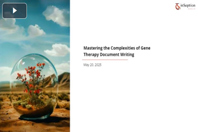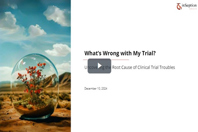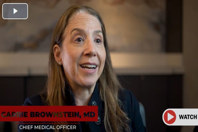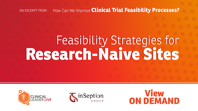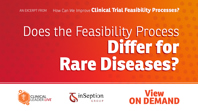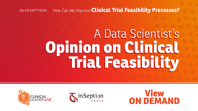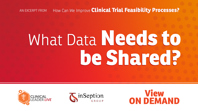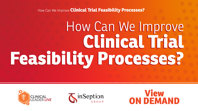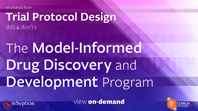
ABOUT INSEPTION GROUP
inSeption Group is a global full-service outsourcing organization built upon a foundational culture of exceptional service and quality.
This culture attracts a subset of industry experts who value your assets as much as you do and take personal responsibility for delivering on what has been promised. Our ability to integrate these dedicated professionals into your teams results in unmatched execution and continuity.
inSeption Group offers full-service outsourcing, functional service provider solutions, and consulting services specializing in oncology, hematology, neurodegenerative disorders, rare disease, and cell and gene therapy.
VIDEOS
-
Elevate your complex oncology program by partnering with a team that delivers transparent communication, deep expertise, and the focused attention emerging and midsized biotechs need to succeed.
-
In this presentation, our expert panel introduces the concept of scaffolding — a targeted reinforcement strategy designed to strengthen trials from the inside out.
-
Discover how flexible, site-focused monitoring strategies are transforming clinical trials by improving communication, enhancing compliance, and resolving challenges before they impact study success.
-
Gain the insight and strategic flexibility needed to confidently navigate the unique scientific, regulatory, and documentation challenges of gene therapy development.
-
Gain valuable insights into the role of sponsor-side Clinical Operations leadership, the risks of over-relying on CROs, and key strategies for fostering collaboration between sponsors and partners.
-
Discover essential strategies to prevent clinical trials from reaching a crisis while gaining a deeper understanding of the importance of addressing systemic issues early.
-
Explore some of the major challenges that medical writing submission specialists face today and strategies that can consistently set the stage for success.
-
Hear from inSeption Group clients as they share their experiences, recount their journeys and highlight the exceptional service and support they received.
-
Feasibility is not just a science, there’s also an art to it, says Nick Palumbo, director, feasibility and study start-up, at Takeda. In this clip he talks about how difficult it is for research sites with limited experience to get on a sponsors’ radar.
-
Mimi Ermens, senior director, clinical development operations, global feasibility and start-up support, at CSL Behring answers a question from the audience about whether there is a difference in how you should approach the feasibility process when dealing with rare diseases vs. common diseases.
-
How do we define success in the clinical trial feasibility process? Monica Jain, director, R&D data science, Johnson & Johnson Innovative Medicine has a data science background and chimes in with her opinion.
-
Nick Palumbo of Takeda explains that with feasibility in clinical trials, it has to be a “two-way street” between the sponsor and sites. He and Mimi Ermens (CSL Behring) talk about the types of questions that need to be asked and the kinds of data that needs to be shared by each stakeholder.
-
Monica Jain of J&J Innovative Medicine talks about how technologies, real-time monitoring, and performance-based metrics have helped improve the feasibility process and make it more proactive.
-
Inefficient. Time-consuming. Frustrating. Often, these are the words used to describe the feasibility and site selection process for clinical trials. In this Clinical Leader Live, experts from J&J Innovative Medicines, Takeda, and CSL Behring discuss how they’ve improved the feasibility assessment process.
-
Delve into the significance of adept interpersonal leadership within your drug safety program, shedding light on the operational and financial benefits that stem from fostering a collaborative environment.
-
In part two of this webinar series, presenters focus on avoiding potential risks, such as unexpected budget changes and unplanned change orders, that could jeopardize the success of a clinical trial.
-
Watch this presentation to equip stakeholders with actionable strategies and a comprehensive understanding of the evolving clinical trial management landscape in the context of ICH guidelines.
-
Gain insight from several clinical operations experts into the significance of meticulous contract examination when choosing an outsourcing partner.
-
Mitchell Katz, SVP, global clinical operations, has “been there, done that,” when it comes to making decisions about trial control arms, which comparator to use, or the number of patients needed in a first-in-class drug development program. Katz shares his process and thinking here.
-
Patient organizations are important sources of information for trial protocol design. Jessica Powell, VP, clinical operations at Alto Neuroscience, talks about how small and midsize companies without a large commercial organization can engage patients and trial investigators to improve trial performance.
-
Trial protocol strategies for FDA approval must also meet the needs of global regulators, if a therapy is to be commercialized worldwide. Michael Krams, chief quantitative medicine officer at Exscientia explains how R&D leaders should think about FDA and ex-U.S. product approval.
-
How should drug developers think about biomarkers in trial protocol design, particularly in neurodegenerative diseases? Jessica Powell, VP, clinical operations at Alto Neuroscience, shares her thoughts and experiences.
-
Drug developers should use a “model-informed drug discovery and development” program, which can help developers simplify the protocol design process, says Michael Krams, chief quantitative medicine officer at Exscientia.
-
How do drug developers make decisions about what to include, and what to leave out, of a Phase 2 clinical trial? Mitchell Katz, SVP, global clinical operations at Kyowa Kirin discusses collecting competitive intelligence and forging relationships with regulators.
-
Designing a clinical trial protocol that exhibits the value of a new drug is central to bringing innovative treatments to market. Listen in as experts share tips for ensuring no missteps go unnoticed.
-
Everything we do is driven to challenge the status quo in the current outsourcing paradigm. inSeption is a home for clients and professionals who have been stifled by mainstream, high-volume, commoditized outsourcing models.
CONTACT INFORMATION
inSeption Group
800 Adams Avenue
Audubon, PA 19403
UNITED STATES
Phone: (267) 498-5092
FEATURED ARTICLES
- How To Build Effective Clinical Trial Oversight And Leadership
- Writing Effective Clinical Regulatory Documents For Therapy Trials
- Best Practices For Gene Therapy BLA/MAA Submissions
- Dispelling Common Clinical Trial Oversight Myths
- Optimizing Clinical Data: Reducing Redundancy For Efficiency
- The Power Of AI To Improve Clinical Trial Monitoring
- Why The Regional Site Manager Is The Swiss Army Knife Of Clinical Trial Monitoring
- Successful Regulatory Submission Via The Trifecta Of Awesomeness
- Diverse Mentorship Models Create Multiple Paths To Employee Success
- The Critical Role Of The Medical Monitor
- Strategies For A More Secure Outsourcing Bottom Line
- How To Establish Effective, Scalable Drug Safety Ops Across Vendors
- How To Unlock The Secret To Repeatable, Scalable Low Turnover
- Treating Deficiencies In Employee Training And Mentorship
- Shifting The Approach: 4 Tactics For ICH E6(R3) Implementation
- The Write Side Of AI: Augmenting Capabilities, Not Replacing Them
- Modernize TMF Culture To Better Support Modern Clinical Trials
- How Sponsors And Patients Benefit From A Site-Centric Partnership
- Uncovering Hidden CRO Contract Costs Before Signing A Contract
- Accelerated Development: Gene Therapy Vs. Small Molecule
MYTHBUSTERS
-
Large CROs have a vast pool of resources and a subset of amazingly talented people. However, the decision to select such a CRO on the concept that they have access to the best talent, and the hope that those resources will be assigned to your study, is flawed.
-
Most quantitative and qualitative studies seeking to understand what creates fear and anxiety in humans conclude with some version of the same 4 key criteria: Lack of Control, Large Consequence, Sudden Occurrence, and Unfamiliarity. In our outsourcing industry, it is never an easy decision to select a partner when trying to run complex sequential trials. The need to gain regulatory approval for the treatments you have dedicated yourself to providing, coupled with the need to find a capable, reliable, and fair Contract Research Organization is quite daunting.
-
The theory of Corporate Memory is easy to understand and agree with – the better you record and understand recurring actions the better you will perform those actions. Read why Capitalizing on corporate memory might work at an individual level but is nothing more than a myth and an empty promise in the complex changing world of drug clinical studies.
-
Have you ever asked yourself why you take comfort with governance agreements? They're created to "protect" you when your CRO fails - and even then, what can you realistically do? Find out the answers here.
E-BOOKS
-
Learn how to identify common CRO selection pitfalls and apply expert-backed strategies to protect your clinical program from costly risks and delays.
-
Gene therapy has existed for decades, but the field is not as mature as it may seem. Here, the author provides essential insights and strategies for overcoming gene therapy development challenges.
-
Making the right outsourcing decision can significantly contribute to the success and growth of your program, providing essential support and resources that empower it to thrive in its objectives and endeavors.
-
Delve into four articles regarding dissecting the critical resources, processes, and key stakeholders essential for the successful completion of an ACT clinical trial.
-
Discover how biopharmaceutical sponsors in clinical trials leverage real-time data analytics and conduct comprehensive gap analyses to improve trial efficiency and overcome study challenges, such as patient recruitment and retention, risk mitigation, and evolving patient expectations.
-
Discover how clinical research services must wade through a bog of incomplete information, and sometimes outright misinformation, when it comes to seeking reliable partnerships.
-
Biopharma companies — particularly smaller or emerging organizations — often are unable to draw maximum value from CROs. This occurs for any number of reasons, several of which are covered in this e-book.















